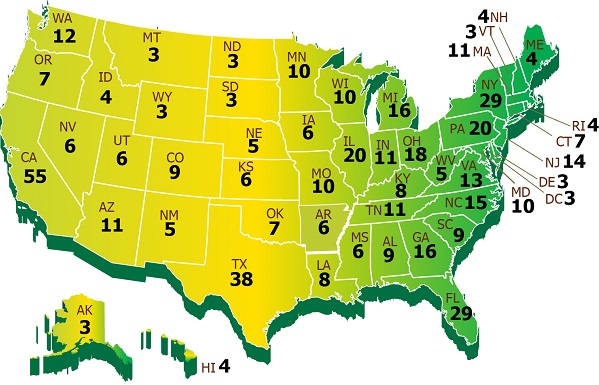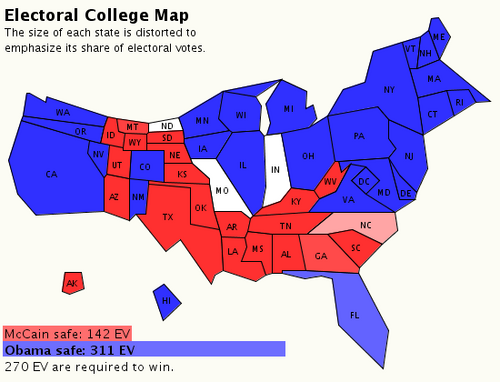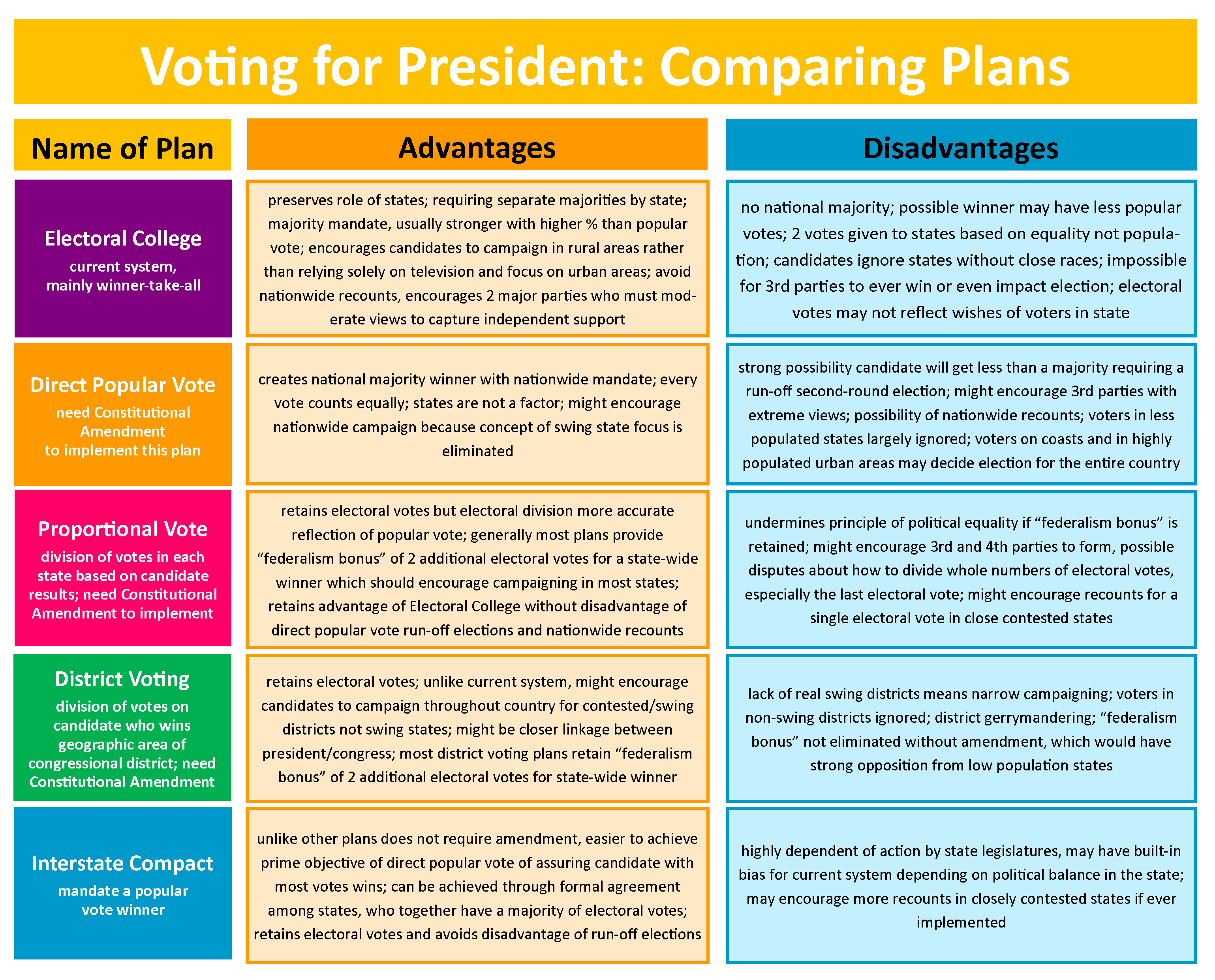The Electoral College system stabilizes the U.S. Political structure by supporting a two-party system.
It ensures a wide geographical representation in presidential elections. Navigating the complexities of presidential elections, the United States utilizes the Electoral College, a mechanism that stands out for balancing the focus between populous and less populous states. This system underpins the democratic ethos of the country, preventing heavily populated urban areas from solely steering the outcome of a presidential race.
Recognizing the advantages of the Electoral College is crucial in understanding the foundational aspects of American political administration. A blend of federalist principles and democracy, the Electoral College aims to amplify voices across diverse states, forging an equitable platform for all regions. Its design encourages nationwide campaigning, compelling candidates to address a broader array of issues pertinent to different states. By embracing this structure, the U. S. Reinforces the principles of representative governance and maintains the robustness and legitimacy of its presidential election process.

Credit: www.procon.org
Origins Of The Electoral College
The Electoral College was established by the Framers of the Constitution. The system was crafted to balance power among the states. Large states could not overpower small ones. The founders feared direct democracy. They believed a buffer was necessary to ensure a fair election. Smaller states were given a voice through this design. Electoral votes are determined by combining senators and representatives. Thus, every state has at least three electoral votes. This method ensures that candidates cannot ignore small states.

Credit: law.marquette.edu
Balancing State Representation
The Electoral College system helps even out influence between states. Smaller states get a louder voice alongside big states. This ensures each state has a fair impact on elections. Federalism thrives because states matter in the national decision-making process. States’ rights are highlighted, not just populations.
Without this system, large states could dominate. Presidential candidates must pay attention to all states. Thus, they can’t ignore smaller states’ needs. It’s a balance of power that respects state sovereignty. The Electoral College emphasizes unity and equal state representation. It makes sure that every state has a say.
Preventing Tyranny Of The Majority
The Electoral College system plays a critical role in balancing interests across diverse populations. By design, it prevents large states from deciding elections alone. This protects smaller states and ensures their voices are heard. It creates a system where candidates must gain wide support from various regions. This discourages policies that favor only the majority. The Electoral College acts as a safeguard against direct democracy, where the majority could impose its will on minorities. It offers a layer of stability and maintains the United States’ federal character.
Facilitating Decisive Outcomes
The Electoral College guarantees clear electoral results. Such a system aims to ensure quick and definitive election outcomes. With the Electoral College, each state’s decision has weight. This prevents uncertainty in the winner’s declaration. Elections wrap up without the need for lengthy vote counts or legal disputes.
Clear-cut victories help maintain political stability and public confidence. Quick resolutions via the Electoral College limit the period of electoral tension. This is vital for governance continuity. Thanks to this system, election season is short and decisive. It reduces the risks linked to protracted electoral processes. Such risks include increased public unrest and potential government paralysis.
Promoting National Cohesiveness
The Electoral College system encourages presidential candidates to campaign nationwide. They must win state votes to secure electoral votes. This need fosters national cohesiveness as candidates address issues that affect different regions. Campaigning across the country helps in spreading their political message more broadly.
Candidates are also impelled to form broader coalitions, appealing to a wide range of voters. Rather than just focusing on urban or rural areas, they must connect with diverse groups. This approach promotes a more inclusive political dialogue. Engaging with varied coalitions can lead to stronger national unity. It avoids polarizing policy-making, aiming for solutions that benefit the whole country.

Credit: www.collegesidekick.com
Influencing Policy And Governance
The electoral college boosts policy stability within the nation. It ensures a balanced approach to governance, reflecting diverse regional interests. This system promotes a two-party structure, leading to consistent political control. With such predictability in power shifts, there is a firm base for long-term policy planning.
Electors must consider the nation’s needs critically. This responsibility guides them to choose leaders who prioritize crucial policies. As a result, the electoral college indirectly shapes national priorities. It compels candidates to propose practical and appealing governance strategies to gain elector support.
Frequently Asked Questions On What Are The Advantages Of Electoral College
What Is The Electoral College And Its Significance?
The Electoral College is a body that elects the U. S. President, reflecting each state’s voting power. Its significance lies in balancing influence between populous and less populous states, ensuring broader representation in presidential elections.
What Is The Popular Vote Vs Electoral College?
The popular vote reflects the total number of votes cast by citizens across the country. The Electoral College, on the other hand, consists of electors from each state who ultimately elect the president. A candidate can win the popular vote but lose the Electoral College.
Who Created The 12th Amendment?
The 12th Amendment was enacted by the U. S. Congress and ratified by the states in 1804, following the contentious presidential election of 1800.
What Is Meant By The Term Swing State?
A swing state, also known as a battleground state, is a region where voters swing between the Democratic and Republican parties during elections, making these states highly competitive and crucial for determining the outcome.
Conclusion
The Electoral College system plays a pivotal role in United States presidential elections. It ensures a balanced consideration of votes from states, large and small. By empowering regions, the College upholds the federal structure. It’s a cornerstone that maintains the voices of individual states, truly a unique feature of the American democratic process.

